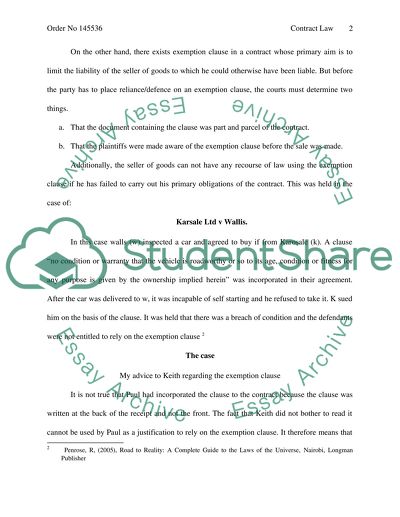Cite this document
(“Contract Law Essay Example | Topics and Well Written Essays - 2000 words - 5”, n.d.)
Contract Law Essay Example | Topics and Well Written Essays - 2000 words - 5. Retrieved from https://studentshare.org/law/1510462-contract-law
Contract Law Essay Example | Topics and Well Written Essays - 2000 words - 5. Retrieved from https://studentshare.org/law/1510462-contract-law
(Contract Law Essay Example | Topics and Well Written Essays - 2000 Words - 5)
Contract Law Essay Example | Topics and Well Written Essays - 2000 Words - 5. https://studentshare.org/law/1510462-contract-law.
Contract Law Essay Example | Topics and Well Written Essays - 2000 Words - 5. https://studentshare.org/law/1510462-contract-law.
“Contract Law Essay Example | Topics and Well Written Essays - 2000 Words - 5”, n.d. https://studentshare.org/law/1510462-contract-law.


